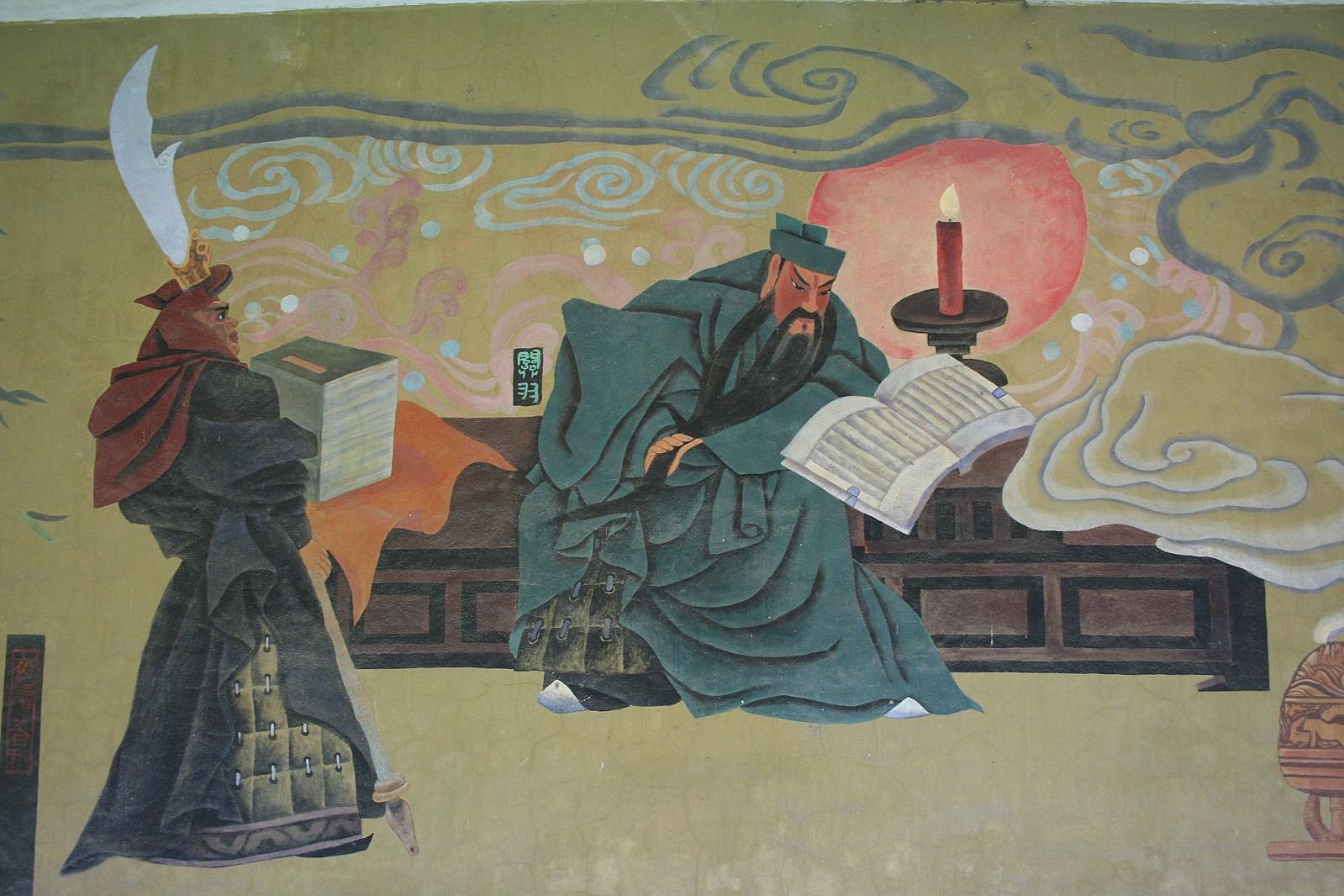4. Open Season: the Historical Context
The historical context of classical Chinese philosophy, and how ancient Chinese historical works themselves became works of philosophy.
Themes:
• S. Durrant, W. Li, and D. Schaberg (trans.), The Zuo Tradition/Zuozhuan Reader: Selections from China’s Earliest Narrative History (Seattle: 2020).
• H. Miller (trans.), The Gongyang Commentary on the Spring and Autumn Annals (New York: 2015).
• J.S. Major and C.A. Cook, Ancient China: a History (Milton: 2016).
• M.E. Lewis, The Construction of Space in Early China (Albany: 2005).
• M.E. Lewis, The Early Chinese Empires, Qin and Han (Cambridge MA: 2010).
• M. Loewe (ed.), The Cambridge History of Ancient China: from the Origins of Civilization to 221 BC (Cambridge: 1999).
• M. Pu, Daily Life in Ancient China (Cambridge: 2018).
• E.L. Shaughnessy, A Brief History of Ancient China (London: 2023).
• N.A. Van Auken, Spring and Autumn Historiography: Form and Hierarchy in Ancient Chinese Annals (New York: 2023).





Comments
New theme for 'Historical Context'
I just came across a new theme via this episode called 'Historical context', I'll give you a hand on some episodes that can benefit from this theme.
https://www.historyofphilosophy.net/introduction-indian-philosophy
https://www.historyofphilosophy.net/vedic
https://www.historyofphilosophy.net/after-dignaga
https://www.historyofphilosophy.net/india-history-patrick
https://www.historyofphilosophy.net/buddhism-jainism-introduction
https://www.historyofphilosophy.net/india-greece
https://www.historyofphilosophy.net/india-islam-europe
https://www.historyofphilosophy.net/condemnations
https://www.historyofphilosophy.net/hellenistic-schools
https://www.historyofphilosophy.net/plato-life
https://www.historyofphilosophy.net/aristotle-life-works
https://www.historyofphilosophy.net/plotinus-life
https://www.historyofphilosophy.net/anselm
https://www.historyofphilosophy.net/haitian-revolution
https://www.historyofphilosophy.net/machiavelli-skinner
https://www.historyofphilosophy.net/renaissance-science-daston
https://www.historyofphilosophy.net/skepticism-lagerlund
https://www.historyofphilosophy.net/scholasticism-normore
https://www.historyofphilosophy.net/rampling-alchemy
https://www.historyofphilosophy.net/byzantium-islam-herrin
https://www.historyofphilosophy.net/iconoclasm
https://www.historyofphilosophy.net/byzantine-commentaries-ierodiakonou
https://www.historyofphilosophy.net/manuscripts-primavesi
https://www.historyofphilosophy.net/byzantium-islam
https://www.historyofphilosophy.net/science-palaiologan-renaissance
https://www.historyofphilosophy.net/later-orthodox
https://www.historyofphilosophy.net/trizio-byzantine-latin-medieval
In reply to New theme for 'Historical Context' by dukeofethereal
New theme
Thanks! I was adding them earlier today and realized that there must be a lot that I had missed. I was thinking that this theme would really be for episodes where historical context is more or less the main point, so I might not add all of those but you are right about some of them (e.g. iconoclasm).
Classification of people in relation to custom
Where can i find the Xunzi (?) classification of people in relation to custom you mention around minute 8.
In reply to Classification of people in relation to custom by Jan
Xunzi passage
Here you go: X.Q. Wang 王先謙 (compiler), Xunzi jijie 荀子集解, 3 vols. (Shanghai: Sao ye shan fang, 上海: 掃葉山房; 1926), quoted at M.E. Lewis, The Construction of Space in Early China (Albany: 2005), 198.
In reply to Xunzi passage by Peter Adamson
Re: Xunzi passage
Thank you! I was particularly wondering about the models vocabulary and the "100 models", which are missing from the quoted passage.
I found a reference to the "100 models" in Knoblok, p. 206:
"Of the sources of ritual principles, none is more important than the sage kings. But one asks: There are a
hundred sage kings, which one ought I to use as my model?"
But in this passage the models seem exclusive and not to be followed together.
Add new comment